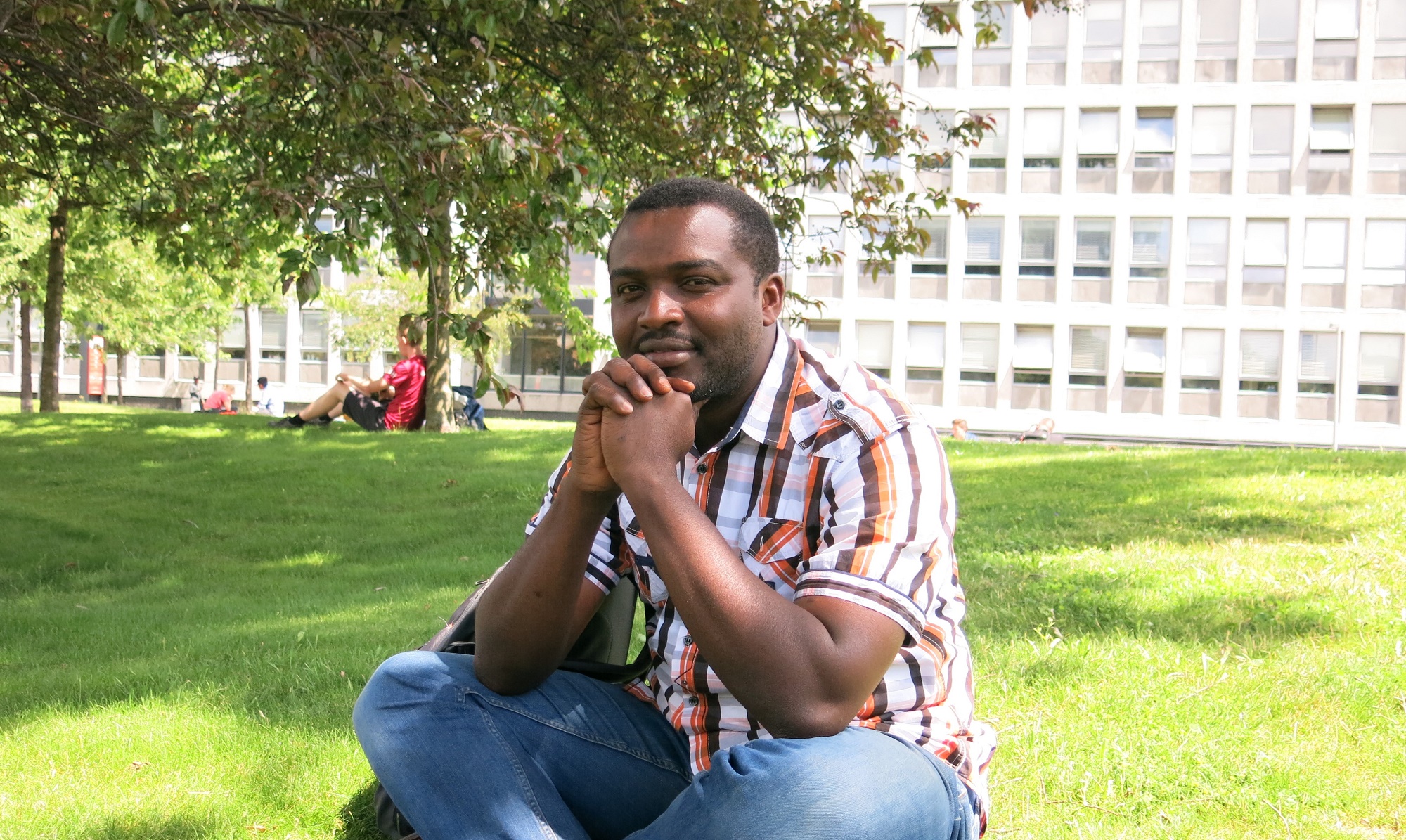Meet PhD candidate Temitope Agbana, who is developing malaria detection technology that can save lives.
Temitope Agbana: “We started a foundation with the goal of making sure that this and other devices get to where they are really needed.” (Photo: Heather Montague)
“I was working in Nigeria for a telecommunications company and I felt like I wanted to make some kind of impact on society, much more than I was already doing. I figured out that research was a good way to do it so I came to Delft in 2010.
I started with a master’s programme in microwave sensing, signal & systems and in 2011 I had the privilege to work with Michel Verhaegen, a professor at the Delft Centre for Systems and Controls. It was quite interesting. Then in 2016 we wrote a proposal about developing an optical device for malaria detection and luckily, we got the funding.
In 2017, 435,000 people died as a result of malaria according to the World Health Organisation (WHO) and this is largely due to untimely detection of the parasite in infected patients. My older brother died of untimely diagnosis of a treatable disease so I thought about how technology could speed up the early diagnosis of malaria and other parasitic diseases in humans and animals. The standard method usually requires a trained human expert to take blood samples and critically examine them through a microscope. Since the parasite to be detected is so tiny it’s like looking for a needle in a haystack. The diagnostic routine is cumbersome, requires intense concentration and is prone to human errors. We thought, can’t we use intelligent optical methods to do better?
‘The device must be robust enough to survive in rural areas’
So, we’re working to develop an affordable diagnostic tool to speed up the process that requires minimal human intervention, and that can provide a diagnosis in a few minutes instead of hours or days as may be experienced by people living in rural areas. We went into the field with our proof-of-principle to test our proposed methodology, to validate our assumptions and interact with stakeholders. It’s not enough just to develop something like this in the lab. You need to go there and see if it works and if it’s really needed. From our field visits, we discovered that along with performance accuracy, our system must also be robust against dust, temperature variation, humidity and power supply outages.
With the precious inputs from local people, medical experts, doctors and NGOs, we came back to the lab to develop a device that is robust enough to survive in rural areas and can also work in primary health care facilities as well as in big hospitals.
Together with my supervisors Michel Verhaegen and Gleb Vdovin and other medical experts in the Netherlands and Nigeria, we started a foundation called Medical Optics Fund with the goal of making sure that this and other devices get to where they are really needed. But to get to this stage, we first need financial, material and logistics support to achieve larger performance studies in the field to certify the product for use.
Want to be featured in Humans of TU Delft? Or do you know someone with a good story to tell? Send us an e-mail at humansoftudelft@gmail.com
Heather Montague / Freelance writer



Comments are closed.